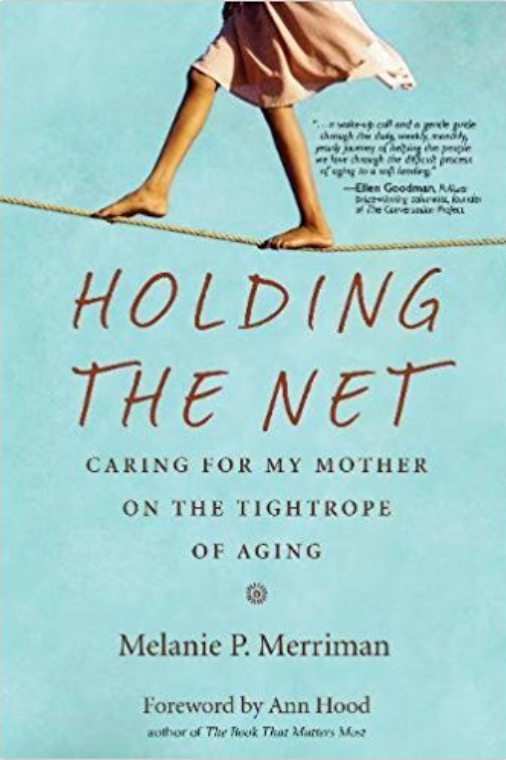Episodes Season 9
Hear stories we love from various publications, editors who offer insight into how to get published, stories by our students and stories our listeners submit.
You’ll also hear stories from hosts Andrea + Allison and commentary, always.
Home stories theme music by Ari Herstand
Season 9 theme music by Emia
Episode 89: How Does a Man Get Away with Calling Women Bitches and Hoes in a Story?
Today’s episode is the last in a series called Home. Writing Class Radio helped produce a documentary with Chapman Partnership, a homeless center in South Florida, exploring the meaning of home. Our documentary will air on PBS, date (tba).
On this episode, you will hear a story by Marvin Jenkins, a past student, poet, Boeing employee, and dad. Marvin lost his home after he wrote an explicit text message to his girlfriend’s best friend and she kicked him out. Marvin has always been in love with Serena, but drugs got the best of him.
Marvin’s essay is a great example of how taking responsibility for your actions in a story creates a reliable narrator. The voice in this essay also exemplifies how you can say ugly things, if you own that they are ugly.
EPISODE 88: Should I Stay or Should I Leave This Country?
Today’s episode is part of a series called Home. Writing Class Radio helped produce a documentary to help end homelessness for Chapman Partnership, a homeless center in South Florida.
On this episode, you will hear a story by writer Tiffanie Drayton who takes an idea that most Americans hold about our country and turns it on its head. Typically, people come to America to seek asylum. But, Tiffanie left America to seek asylum. She left because she didn’t feel safe here as a Black American.
Tiffany’s essay was published in the New York Times on June 12, 2020, which led to an agent signing and a 250k book deal. You’ll hear that story plus our conversation with Tiffanie about her experience as a Black person in America. Tiffanie came to America from Trinidad at four years old. She talks about her privilege as a dual citizen and her responsibility as a writer to call herself out for that privilege.
Tiffanie Drayton is working on a book about fleeing American racism.
Episode 87: At Home in My Skin
Trigger warning: This story contains strong language and images and is not appropriate for children. Sexual violence is discussed.
Today’s show is part of a series called Home. Writing Class Radio helped produce a documentary to help end homelessness for Chapman Partnership, a homeless center in South Florida. We put out a public call for submissions for stories about home. The call brought so many different and fascinating takes. Thank you to all the people who submitted stories.
In our home series, you’ll hear a story about a woman who is torn between two homes, a man who finds home through love with a woman while he’s dealing with addiction, and a woman who finds home in another country less racially divided.
Today’s story by Mary Ann Parker is about feeling at home in your skin.
Mary’s story shows how to expertly plant seeds, which is a way to drop hints and lead your reader to your conclusion.
Mary Ann Parker is a war veteran and a student in our class. She is working on a memoir.
Episode 86: Torn Between Two Houses Feeling Like a Fool
Today’s show is the first in a four-part miniseries called Home. Writing Class Radio helped produce a documentary to help end homelessness for Chapman Partnership, a homeless center in South Florida.
The story you’ll hear on this episode is by Anechy Padron who is torn between two homes.
This episode’s writing lesson addresses an essay that doesn’t have a clear ending or resolution. We always want to make a solid point, but sometimes the point is a conflict. Anechy’s story reveals that conflict.
Anechy was born in Cuba. She’s an actress-puppeteer and writer who worked as a clown in a Cuban circus. Anechy writes in English and Spanish and has been published in the Mexican anthology, Cada Loco Con Su Tema. For more Anechy, visit her travel blog and creative blog.
Episode 85: What Does Your TV Habit Say About You?
This episode is about story structure and all things done well in an essay. LiAnne Yu tells a story about watching TV with her Chinese immigrant parents. As a narrator she brings us into her world--dinners in front of the TV with her parents. She uses detail to reveal character--Mork & Mindy, Sex and the City, and Fox News. She follows the five Cs of story structure: context, circumstance, complication, change, consequence.
LiAnne Yu is an anthropologist and writer based in San Francisco and Kailua Kona, Hawaii. Her story was originally published in The New York Times, July 17, 2020.
Episode 84: Who’s Your Voice of Reason?
This episode is about using a character to express the voice of reason. So often in a story, the narrator is in a bind and can’t see clearly.
The story we bring you today is by Nicholas Garnett. Nick’s wife says something that opens his mind to a different point of view. Nick went years believing something that might not be true. In this story, he artfully showed us the moment the story he told himself was called into question.
Nicholas Garnett is an adjunct professor of creative writing at Florida International University and Miami Book Fair International. He’s editor of the journal Sliver of Stone. His writing has appeared in Salon.com, The Florida Book Review, and other places including Best Sex Writing of 2013. Most importantly, he’s the co-producer of Lip Service, which is a Knight Foundation award winning live storytelling show in Miami.
Episode 83: Every Word Matters
Today on our show, we’re talking about how every word in a story matters. We have a story to share that illustrates this point so well. Essayist, teacher, and Writing Class Radio listener Amy Paturel submitted her story called “The Other Love of His Life,” which was originally published in Newsweek, April 2009.
Amy’s story is a great example of how every word must lead to the final conclusion. Every scene, detail, and description should move the story forward. If not...cut.
Amy Paturel teaches personal essay writing online and offers one-on-one coaching to professional and aspiring writers. Her essays have appeared in Newsweek, The New York Times, The Los Angeles Times, Real Simple, Parents and Good Housekeeping.
Episode 82: A Poet’s Response to Senseless Murders
This episode of Writing Class Radio is dedicated to George Floyd, Ahmaud Arbery, and all those who have lost their lives in a senseless murder.
The story we share with you on this episode is by student and poet Zorina Frey. Last Saturday, May 30, 2020, Andrea gave students a writing prompt and 14 minutes to write about whatever came to mind. Zorina’s response is helping us sit with the sadness, anger, and grief. It is a story that’s helping us reflect and process everything that’s going on.
The prompt was Religion.
Zorina Frey is an improv and spoken word performer and the owner of I.W.A. Publications. I.W.A specializes in creating SEO content and consulting aspiring writers and experts to publish a book in their area of expertise. She has over a decade of publishing experience including Indiana University South Bend’s Michiana Monologues nonprofit organization. Her poetry has been published in Analecta and New Views on Gender literary magazines.
Episode 81: An Insider Conversation with a Literary Agent
Today on our show, we share a New York Times Modern Love essay we love by Jessica Strawser, editor-at-large at Writer’s Digest.
Her essay caught the attention of literary agent Barbara Poelle, an agent with the Irene Goodman Literary Agency and the author of Funny You Should Ask: Mostly Serious Answers to Mostly Serious Questions About the Publishing Industry. Her book is based on her Writer's Digest column of the same name. On today’s show, we share our conversation with Barbara about how to get an agent.
We asked Barbara all kinds of questions: Is now a good time to query? How do I find an agent? Is there such a thing as a dream agent? Do authors even need an agent? What should I do before signing an agent? We also ask the big question: Can we write about certain experiences that aren’t our own? Barbara gives us the insider info.
Barbara Poelle began her publishing career as a freelance copywriter and editor before joining the Goodman Agency in 2007, but feels as if she truly prepared for the industry during her brief stint as a standup comic in Los Angeles. She has found success placing thrillers, literary suspense, Young Adult and upmarket fiction and is actively seeking her next great client in those genres, but is passionate about anything with a unique voice.
Jessica Strawser is editor-at-large at Writer’s Digest. She is author of Almost Missed You, Not That I Could Tell, and her latest, Forget You Know Me. She’s won a bunch of literary awards. Her work has appeared in The New York Times Modern Love, Publishers Weekly, and other fine outlets. Find her on Twitter @jessicastrawser, and Facebook and Instagram @jessicastrawserauthor.
Episode 80: We Grant You Permission to Write or Not to Write During this Crisis.
Today on our show, we are talking about what we can’t stop talking about, the coronavirus. Every email, text, call starts with, “How are you holding up?” It’s beautiful and exhausting, so we put out a call for coronavirus stories.
We have two stories to share. One is by our own Andrea Askowitz who is still living in Madrid. Madrid is one of the most contagious cities on earth and if you’ve seen her videos of her family dancing on FB, you are aware she’s going a little stir-crazy. Writing has helped calm her.
And we have a story by Sari Botton, the essays editor of Longreads. In Sari’s essay, she gives us permission to tell our stories even if they feel petty. We always say, stories matter. And now, stories matter as much as ever. But for those of us too freaked out to write, Sari also gives us permission to take the pressure off producing.
We talk a lot on our show about situation and story. The stories you will hear today are both about this coronavirus situation, but they also bring us something more about the human condition. We hope these stories are both comforting and inspiring.
Sari Botton's list of writing resources:
Vanessa Mártir offers many personal essay prompts that she made available for free in 2019 on her Writing Our Lives site.
Cookbook author Julia Turshen is offering free food writing workshops via Instagram Live.
The Writing Barn is offering a free webinar called “Writing Through Troubled Times.”
Toby Litt has a free 10-session short story writing workshop online.
The Porch Writers’ Collective in Tennessee is offering daily writing prompts on Twitter. They’ll be moving them to email, so sign up at www.porchtn.org.
Barrel House is offering free online write-ins.
Anna Polonyi has started Quarantine Quill, via the Paris Institute, a podcast on which she offers one writing prompt and one writing tip each day, for the duration of the lockdown in Paris.
Stonewall Writers and Readers is hosting free writers’ groups online.
And one more featuring Sari: "I’ve got an into-level essay writing workshop on Skillshare. If you sign up for it, you can get a two-month free trial that lets you access all the courses on their site. Right now, Skillshare is also offering two months free (without having to give credit-card information) for current K-12 and college students, and others who qualify based on need. (I’m pretty dorky in my video, and I wish I’d thought to like, style my hair that day…? But I stand by the content of it.)"
Sari Botton is a writer and editor living in Kingston, NY. Her writing has appeared in The New York Times, Harper’s Bazaar, Marie Claire, Women’s Wear Daily, W, The Billfold, The Rumpus, The Millions, Catapult, plus other publications, and assorted anthologies. She is the Essays Editor for Longreads, and edited the award-winning anthology Goodbye to All That: Writers on Loving & Leaving NY and its New York Times bestselling follow-up, Never Can Say Goodbye: Writers on Their Unshakable Love for NY. She teaches at Catapult and in the MFA program at Bay Path University.






















